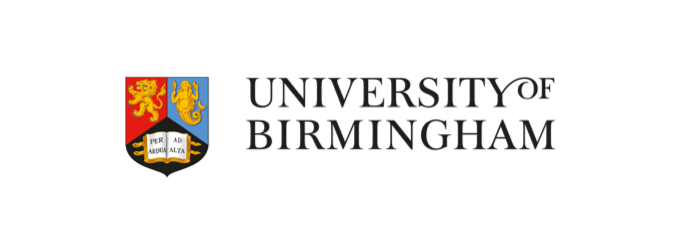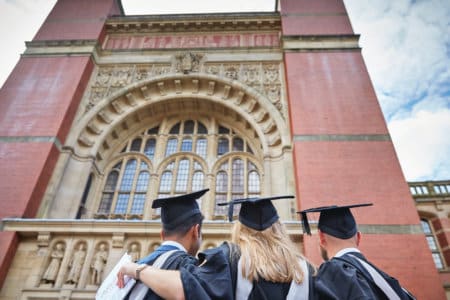A creative industries degree from the University of Birmingham (UoB) can transform you into a graduate with a special type of confidence and can-do spirit. UoB graduates possess deep knowledge and dynamic experiences gained from the original “redbrick” University, part of the prestigious Russell Group. Whether it’s an undergraduate or postgraduate degree from UoB you hold, you’ll be able to leverage it to forge your future in the arts and cultural sectors. It’s even better if you hold two UoB degrees – which you can achieve by pursuing the BA Digital Media and Communications and MA in Digital Media and Creative Industries.
Complete either or both, and you’ll amass an invaluable set of experiences that can take your career far. The BA Digital Media and Communications is an opportunity to undertake industry-focused learning and teaching to put your knowledge into practice in many fields. This is because there are few limits to exploring your passions here thanks to a wide range of optional modules. These include English Literature, English Language, Film and Creative Writing and more alongside core modules in Digital Media and Communications.
The MA in Digital Media and Creative Industries is a new offering, starting next September, that can make you a multi-faceted expert. You’ll learn across a range of disciplines: law, marketing, film, digital media, and the humanities. Core modules include Creative Industries and the Law; Creative Industries: Policy and Professional Development and Marketing in the Creative and Cultural sector. This is intentional, so that you form a rounded view of the sector. A career in creative industries requires imagination, entrepreneurial ability, and a knowledge of legal and policy requirements – and this MA will provide you with just that.
But what will make you impress recruiters is not just your degree and that it comes from a Top 100 university in the world for Arts and Humanities (QS 2023), but also from everything you’ll learn from UoB academics and industry experts on a range of exciting hands-on modules. Beyond bringing theories to life, these help you develop as a creator or producer through practice-based projects and modules covering marketing and creative industries in legal contexts. “Studying our new MA in Digital Media and Creative Industries will help students to develop the knowledge and skills that a career in the cultural and creative sector requires,” says Professor Daniel Moore, Head of School English, Drama and Creative Studies.
There are many other opportunities to develop your own creative or professional practice on the programme. This happens when you work on live briefs from UoB partners in the sector across the region as well as a standard academic dissertation of 12,000 words or a practice-based project that works with industry on a particular facet of their work. “Our networks across the region will provide the opportunity to network with some amazing partners – BBC Drama Village, the Royal Shakespeare Company, Birmingham Museums, and many more,” adds Moore.
The network Moore refers to is extensive. As Birmingham is at the forefront of emerging creative industries and cultural activity, studying here means you’ll have enviable access to many sectors, from digital innovation and broadcasting in Digbeth to the city’s theatrical, literary and heritage scenes. In the city, you’ll be surrounded by Europe’s youngest population, with lots of ideas and inspiration to share. And on campus, the UoB Elevate programme can help transform your ideas into reality.

Get the highest quality of training in all aspects of the study and making of theatre at UoB’s Department of Drama and Theatre Arts. Source: University of Birmingham
Elizabeth Lawal is one BA Drama and Theatre Arts alumna who benefited from UoB’s industry links. At its 200-seat dedicated Visual Arts Centre, Drama and Theatre Arts students have studio spaces, design, lighting, sound, and stage management work areas to develop performance and production skills. Beyond campus, they get to take part in workshops led by Royal Shakespeare Company practitioners. Thanks to such experiences, Lawal is now a mover and shaker in the UK’s theatre scene. She is a playwright, producer, and facilitator of cultural events across the West Midlands.
“The university expanded my horizons and unlocked my mind to realise the unlimited possibilities of culture and its impact on history and society – and that was transformative for me and my practice,” she says.
Theatre aficionados seeking more academic exploration can join one of the MA Shakespeare programmes. You’ll benefit from UoB’s unique collaboration with the Royal Shakespeare Company and interact with theatre practitioners. You can study at the dedicated Shakespeare Institute in Stratford -upon-Avon, the birthplace and home of Shakespeare.
There are more benefits of being in Birmingham for theatre students. “Creative industries is on the up in Birmingham, with the new multi-million-pound investment in Digbeth Loc Studios, which brings opportunities, careers, and a need for innovative thinking to add insight to our leading position in the digital creative sector,” says Anthony Lilley, theatre producer and Chair of Digbeth Loc Studios.

UoB Department of Film and Creative Writing’s list of staff features internationally renowned scholars and award-winning writers. Source: University of Birmingham
For all its industry links, UoB is also the home of 10 Nobel Laureates. And it’s not just scientists who are making strides in the world of academia. Creative industries students here learn from scholars whose research contributes to developing the UK’s creative industries, including research into the practicalities of immersive theatrical experiences for freelancers. Exclusive talks and performances from visiting artists, producers and practitioners, from Bernadine Evaristo to Patterson Joseph, further enrich what you’ll learn here. Sometimes these guest talks are by Birmingham graduates themselves – such as Marvel Agents of S.H.I.E.L.D star and drama alumna Elizabeth Henstridge. For the 2023 B-Film Annual Lecture, she gave insights into acting and directing, anecdotes from the Marvel universe, and examples of her creative and professional endeavours from her own career.
In June, Film Studies Audio-Visual PhD researchers organised B-Film’s first Creative Practice Colloquium. Together with scholars from Israel, Denmark and the US, the event explored identities and methodologies of those undertaking creative practice research across a range of disciplines, with a focus on PhD students, and on fostering a community of practice.
Such is the environment of the Department of Film and Creative Writing, where open conversations and collaborations can flourish. Whether it’s through writing for the student newspaper, presenting for its TV and radio stations, or hearing from industry experts in film and acclaimed authors, students of all levels here get insight into the cutting edge of the creative industries. It’s a reflection of its #1 ranking for Creative Writing in the Complete University Guide 2024 and in the top 15 for cinematics in the Complete University Guide.
Over at the Department of Music, a different kind of flourishing is taking place. You can hear it from the wide variety of choirs, orchestras, ensembles, music groups and musical theatre organised by the Department of Music, University Music Society, and the Guild of Students. At the Elgar Concert Hall, which can host up to 450 people, there are practice rooms and electro-acoustic music studios, as well as listening booths, manuscript scores and early editions in the library.

The concert hall is named after Edward Elgar, who was appointed the University’s first Professor of Music in 1905. It is one of the world-class facilities in the 16-million-pounds Bramall Music Building. Source: University of Birmingham
BA Music student Mia counts her time singing at Birmingham Symphony Hall among her top five moments at UoB. “I was lucky enough to be a part of two UoB Voices projects, singing Mahler’s Symphony No.8 in 2020 and Carl Orff’s Carmina Burana this year in 2023,” she says. “Singing alongside the CBSO chorus and being led by conductors such as Simon Halsey CBE, Julian Wilkins, Kazuki Yamada and Mirga Gražinytė-Tyla was a truly wonderful experience, and I am looking forward to singing Carmina Burana again at the 2023 BBC Proms.”
Discover more opportunities at the College of Arts and Law to carve a career in the creative industries.
Follow the University of Birmingham on Instagram, Facebook, Twitter, YouTube, Weibo, and WeChat













